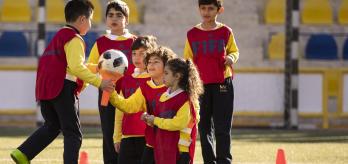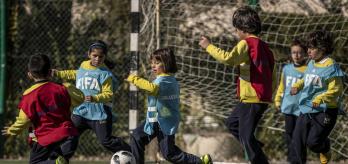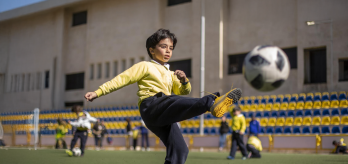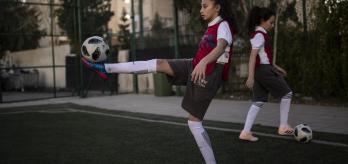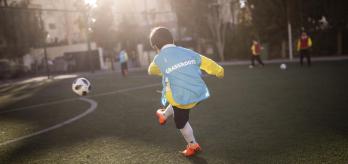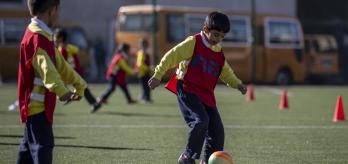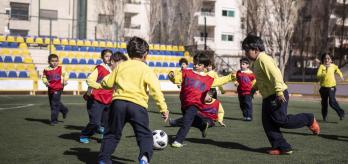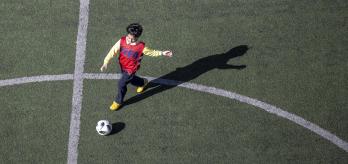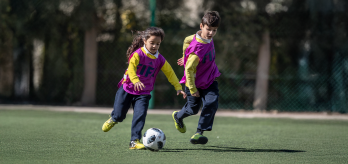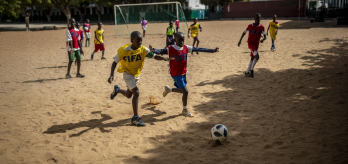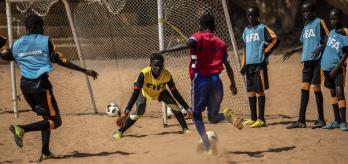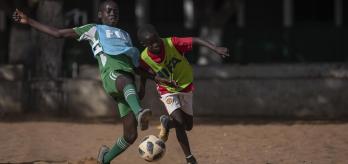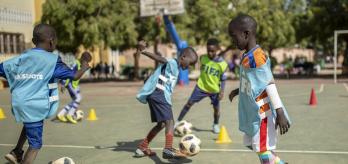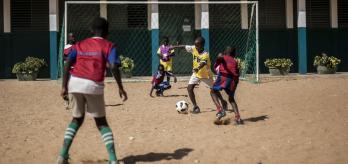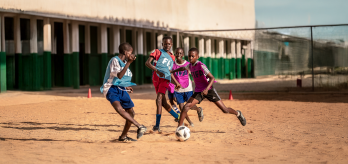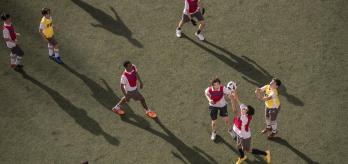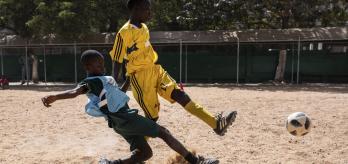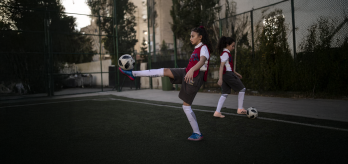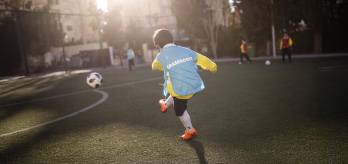At a young age, players are developing both their technical skills and a love for the beautiful game. However, the challenge for coaches is to strike a balance between structured learning and fun, with such limited time on the grass.
In this edition of FIFA’s Grassroots Coaching Essentials series, Stanley Gardiner presents a practical framework for coaches working with this age group who only train once per week. He focuses on three clear principles to make these sessions the most effective they can be: start with fun warm-ups, utilise mini-games to keep players active and creative, and always end with real-game application.
Below, you will find Stanley’s presentation in which he explains how to make the most of once-a-week training by designing sessions that are exciting, engaging and purposeful. The video is followed by a written summary and three age-appropriate activities that will help coaches develop players’ skills and nurture their passion for the game.
Tip 1: Have fun warm-ups
A lively warm-up sets the tone for the remainder of the session and can be a great tool for players to develop core traits during once-a-week training. In this section, Stanley explains why it is important to begin with warm-up activities that are exciting, competitive and always centred around the ball:
-
Create an exciting environment: Beginning with an engaging warm-up captures players’ attention immediately, creating an enthusiastic atmosphere and setting a positive tone for the remainder of the session.
-
Keep it competitive: Incorporating elements of friendly competition into warm-ups helps to prevent the activities from becoming monotonous, keeping young players motivated and engaged throughout the session.
-
Always ensure the ball is present: For once-a-week sessions, it is vital for coaches to ensure that each player spends most of the time using a ball to practise and refine their technical skills.
Tip 2: Include mini-games
Incorporating mini-games into practice is a simple yet effective way to keep training fun while helping players to develop key skills, such as passing, shooting and ball control. Stanley says that, by playing in small-sided formats, players can stay active, enjoying lots of touches of the ball and expressing themselves:
-
Core skills are always involved: Mini-games give players the chance to practise all key technical skills, such as passing, shooting and dribbling, through activities that mirror game-like scenarios.
-
Lots of touches: Through small-sided games, children will get to have plenty of touches of the ball, helping them to build confidence and improve their ability to cope with real-game scenarios.
-
Don’t over-coach: Coaches should always promote freedom of expression and creativity during activities, as this encourages enjoyment and supports the development of critical thinking and decision-making skills.
Tip 3: Finish with real-game application
Ending a session with a proper game gives players the opportunity to put their practised skills to the test in a realistic setting. Here, Stanley explains how real-match activities keep training enjoyable, reinforce learning and ensure that children leave the pitch looking forward to coming back next week:
-
The perfect note to end on: Providing players with a reasonable amount of normal, unstructured play keeps them interested and wanting to come back for the next session.
-
Always give positive feedback: Coaches should always recognise and praise each player’s effort. This will help them to feel confident and comfortable while on the pitch, maintaining their enthusiasm for the game.
-
Rotate positions: Switching players between different positions allows them to experience both attacking and defensive roles, improving their overall understanding of the game.
Key Take-aways
Making the most of once-a-week training is all about creating an environment where players are excited to learn and eager to return. Here are the key take-aways from Stanley’s presentation on how coaches can design effective, engaging sessions with limited time on the grass:
-
The focus should be on having fun: If there is only one training session each week, the priority should be to ensure that players are having fun, as kids learn more when they are enjoying themselves.
-
Activities should be centred around the ball: All activities during a session should be designed to give players plenty of touches of the ball, which makes analytical activities and mini-games preferable.
-
Keep coaching feedback positive: The coaches should show enthusiasm towards the players by encouraging creativity and freedom of expression, creating a fun environment.


